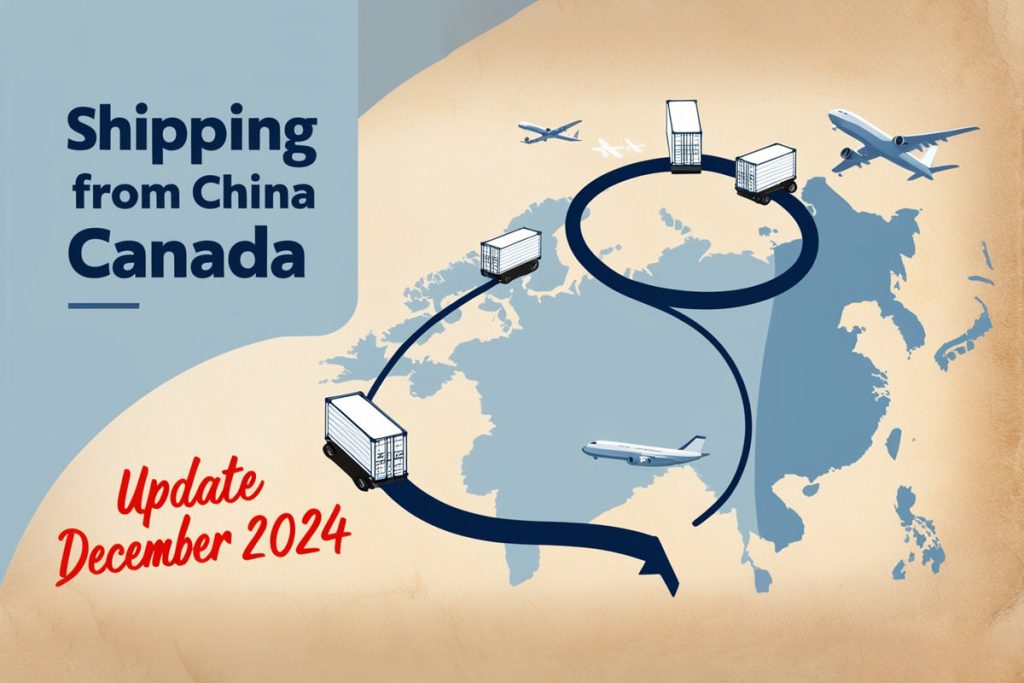Thinking about shipping from China to Canada?
You’re not alone.
Many people and businesses are diving into this.
But let’s face it—there are a lot of questions swirling around.
What’s the process looking like as we wrap up 2024?
What do you need to know to make it smooth?
Let’s unpack this together.

One of the main reasons people ship from China is cost.
Goods are often cheaper, especially when bought in bulk.
China is the world’s factory.
You can find everything from electronics to textiles.
And many manufacturers produce high-quality products.
Shipping from China to Canada opens up a world of opportunities.
You can access products that may not be available locally.
Shipping trends have evolved due to:
The pandemic has reshaped how we think about shipping.
Delays and increased shipping costs became the norm.
But as we move into 2025, things are improving.
When you’re shipping from China to Canada, you have options:
Proper packaging is crucial to avoid damage.
Here are the basics:
Getting the paperwork right can save you headaches down the line:
Shipping from China means dealing with customs.
Here’s what you need to know:
A customs broker can be your best friend.
They’ll help with:
Think of them as your logistics partner.
They handle the nitty-gritty of shipping.
Shipping costs can vary based on several factors:
Be aware of these potential extra costs:
Most freight forwarders provide tracking options.
This lets you keep an eye on your shipment’s progress.
If your shipment is delayed:
Don’t wait until the last minute.
Start your shipping process early to avoid stress.
Keep an open line of communication with your manufacturer in China.
This helps address any issues before they become problems.
Document everything—emails, invoices, tracking numbers.
This will help if you run into issues down the line.
I once spoke to a friend who runs an e-commerce store.
She regularly ships products from China to Canada.
Her secret?
Building strong relationships with her suppliers.
This way, she can resolve issues quickly and ensure quality control.
Another friend wanted a unique piece of furniture from China.
He was nervous about customs but decided to go for it.
With the help of a customs broker, he navigated the process smoothly.
Now, he’s got a one-of-a-kind piece in his home!
It opens up a world of possibilities, allowing you to access a vast array of products often at lower costs.
However, navigating the complexities of international shipping isn't without its challenges.
With the right knowledge and preparation, you can tackle these challenges head-on and make the process as smooth as possible.
As we move into 2025, it's vital to stay updated on regulations, customs policies, and shipping methods.
Doing your research will help you avoid common pitfalls that can lead to delays or unexpected costs.
Remember to communicate clearly with your suppliers in China, as building strong relationships can significantly ease the shipping process.
Utilizing a reliable freight forwarder and customs broker can also save you time and stress, ensuring that your goods arrive at their destination safely and efficiently.
Ultimately, the key to successful shipping lies in being proactive.
Stay informed, plan ahead, and don’t hesitate to reach out for help when needed.
With these strategies in mind, you’ll be well-equipped to navigate the shipping landscape and make the most of your international transactions.
Happy shipping, and here’s to a successful year ahead!